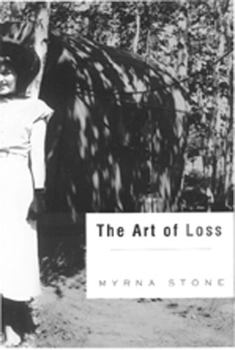The Art of Loss
The title of this collection states the central theme--the losses that accrue over time and the ways in which this particular poetic persona deals with these losses: the loss of loved ones; of faith; of innocence--losses of both a personal, and of a larger, historical nature--losses that simultaneously deplete and elevate. These poems argue that memory is the servant of time, and that the work of memory is "a construct of mirror and shadow" transforming and distilling events until they achieve the status of myth ("Simulacrum"). Put another way, the poems suggest that in the moment something happens, it is already becoming memory, taking the first steps toward myth, neither wholly fiction nor fact, but inhabiting the gray area between. It is into this gray area that the poems look aslant--as though the poetic persona is walking away, looking back over her shoulder--using heightened, lyrical language to describe the commonplace and familiar--a childhood kitchen; a quiet room at dusk; the ritual of Saturday confession; the natural world; the artistic impulse--each filtered through, and mythologized by, the passage of time.
Related Subjects
Poetry




